Hope and fear as pope lands in Myanmar
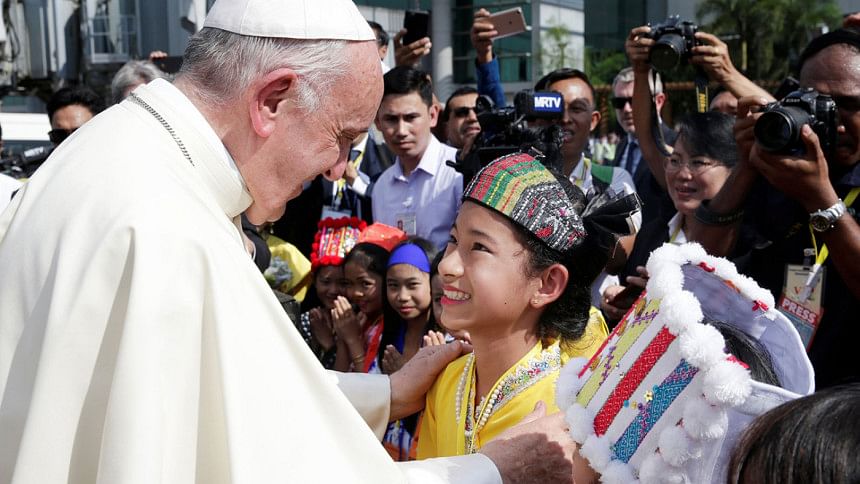
Pope Francis landed in Myanmar today on a mission to dampen a powder keg of religious tension that many fear might only add sparks.
The first trip by a pope to a Buddhist-majority country comes amid a military crackdown in the western Rakhine state that has forced more than 620,000 Rohingya Muslims to flee over the border to Bangladesh. International outrage over what the United Nations calls textbook ethnic cleansing has fuelled growing Buddhist-nationalist sentiment in Myanmar, whose de facto leader Aung San Suu Kyi has rejected claims of atrocities against humanity.
The pope recently denounced the "persecution of our Rohingya brothers [who are being] tortured and killed, simply because they uphold their Muslim faith". All eyes will be on his meeting with Suu Kyi and her army chief Min Aung Hlaing tomorrow.
Like their government, most people in Myanmar do not to recognise the Rohingya as an indigenous group, routinely calling them "Bengali" or Bangladeshi despite their presence in Rakhine for generations. Francis now faces a dilemma in his meetings tomorrow over whether to use the term "Rohingya", which would risk triggering a nationalist backlash and further inflaming religious tensions.
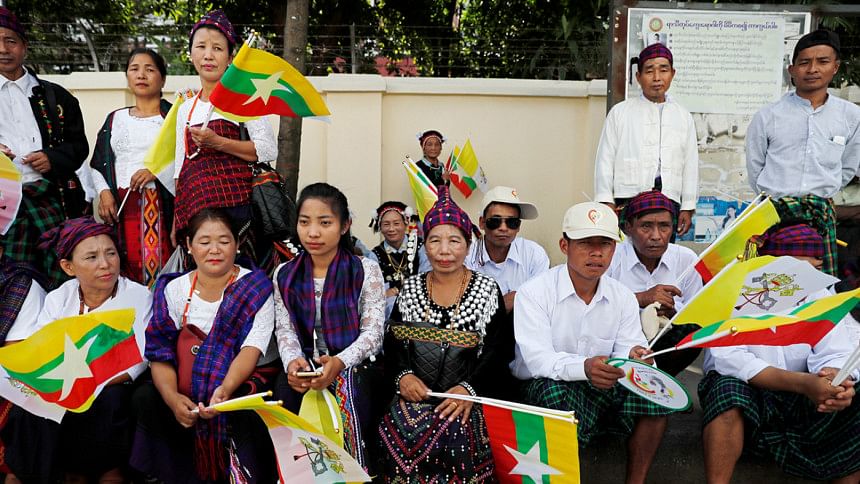
For the country's 700,000 Catholics – who enjoy generally good relations with the Buddhist majority – the pope's visit is an occasion for both joy and trepidation.
Cardinal Charles Maung Bo, the most prominent Catholic in the country, has advised Francis not to use the word "Rohingya", the Guardian reports.
One proposed solution is that he refers to "our brothers and sisters known as Rohingyas" or "the people who identify themselves as Rohingyas".
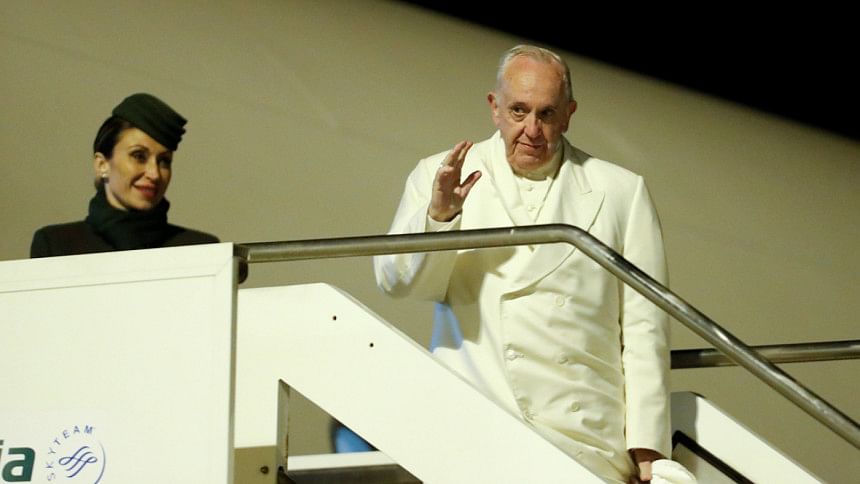
AFP reports that Catholics are travelling from other conflict-weary corners of Myanmar to join a huge, open-air mass led by the pope on Wednesday in the economic hub, Yangon.
Stepping down from a train in the city's bustling main station, Hla Rein said he had made the long journey from the northernmost state of Kachin with high expectations.
"There is a civil war in our state," he told AFP, referring to a separate long-running conflict between Kachin rebels and government forces.
"We believe that the Pope will bring peace with him to our country."
The pope will later this week travel to Bangladesh, a country reeling under the burden of around one million Rohingya refugees, many of whom were pushed out of Myanmar by previous military crackdowns.
Myanmar last Thursday signed a deal for repatriation of refugees but fears remain over their safety in Rakhine, where they are denied citizenship rights and freedom of movement, and face what Amnesty International terms a "system of apartheid".
Pressure is also mounting within Bangladesh over the terms of the deal. Opposition leader Mirza Fakhrul Islam Alamgir yesterday alleged that the government had "sold itself" to Myanmar by signing the Rohingya repatriation instrument, the Dhaka-based Daily Star reports. Fakhrul noted the UN refugee agency had voiced concern over the agreement since it said conditions in Myanmar were not suitable for the safe and sustainable return of the Rohingya.

 For all latest news, follow The Daily Star's Google News channel.
For all latest news, follow The Daily Star's Google News channel. 

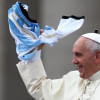
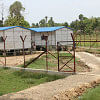
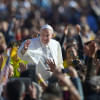
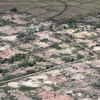



Comments